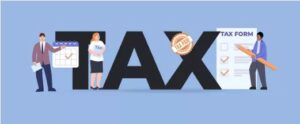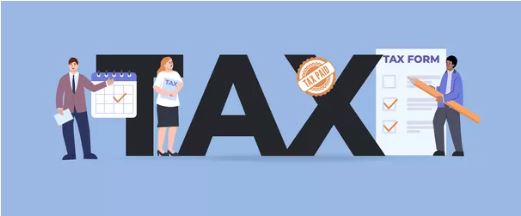
It’s TaxQuips time from TaxMama.com® .
Today TaxMama® wants to talk to you about some questions people have asked TaxMama® after making major financial moves and ending up with extra taxes – or none of the tax breaks they were counting on.

Dear Family,
Well, we’ve survived the April 18th deadline! Many of us are taking a breather. But there is still a lot more work to do. Aside from getting your more complex information to your tax professional, since your return is on extension – perhaps it’s also time to schedule a Tax Planning appointment. We’ll talk about why in just moment by showing the costs to people who acted first – and asked later. [Note: States in Disaster Areas have lots more time – some all the way to October 16th.]
Meanwhile – let me remind everyone, tax pros and taxpayers alike, that if you want to be able to access your IRS accounts, including e-services, you must set up your ID.me account. The deadline to update your to id.me account is May 15, 2023. After that, your older, more familiar logins will no longer work. The good news is, this one login is meant to connect you to all your IRS accounts – your personal accounts and if you’re a tax pro, your professional accounts. Remember, if you are regularly pulling transcripts, I am pretty sure that this must be updated for your transcript services to continue to work. Here are the links:
- To set up your account on your own
https://help.id.me/hc/en-us/articles/4402761436823-IRS-How-do-I-verify-for-the-IRS-with-self-service- - To set up your account with an ID.me video chat agent
https://help.id.me/hc/en-us/articles/4457297927575-IRS-How-do-I-verify-with-a-Video-Chat-Agent-
Why You Need to ASK First
I know we discussed asking first before acting, last month. But..more questions keep coming in and issues arising that make me cringe at the bad news I have to give.
(Names and locations have been changed for obvious reasons.)
Question 1 – Alice asked TaxMama® about taking substantial deductions for her nursing-related travel. She lived in Virginia. Her nursing agency sent her to a temporary job in Texas for six months. During that time, she paid rent, food and mileage. Alice wanted to know how to take a deduction for those costs.
After the fact – Answer 1 – Really bad news for Alice! As an employee, not a dime is deductible during 2018 – 2025. (You can thank the Tax Cuts and Jobs Act of 2017 for this.)
Consulting Answer 1 – If Alice had consulted her tax professional, her tax pro would have helped her determine her expected out-of-pocket costs for those six months. Then, comparing it to the compensation she was being offered she would have been able to do one of two things:
- Turn down the job because after paying all those out of town living expenses, her net income would be substantially lower than simply taking a job locally.
- Negotiate with her agency to get her reimbursements for her housing, food and mileage.
Either way, there would have been nothing to report on her tax return (reimbursements are not taxable) – but her net cash flow for the year would have been thousands of dollars higher.
Question 2 – Albert owns a home and several rental properties. He refinanced 3 properties last year and pulled out about $500,000 in cash overall. Although he used some of that money to pay off debts, he plans to use most of the money to make repairs or improvements on the property. As of April, the funds for improvements are still sitting in the bank account.
After the fact – Answer 2 – Why is this a problem? You may only deduct the interest on loans used to buy or improve your real estate. That’s called acquisition debt. So none of the interest on the loan amounts in excess of that balance before refinancing is deductible. On any of the properties. So interest at 5.5% on $500,000 (about $27,500) might not be deductible anywhere.
Consulting Answer 2 – If Albert had consulted his tax pro first he would have learned about this issue. This non-deductible interest problem could have been handled one of two ways:
- Hold off on the refinancing until he was ready to make the repairs – and then use the funds directly to cover those costs. Deposit the proceeds from each loan to that building’s bank account.
- Needing to wait before getting improvement bids? Deposit the proceeds from each loan to a new, separate account for each property, to be used for the improvements. The IRS does something called tracking – they trace the use and timing of the funds.
- For instance, if the funds are deposited to a general bank account, the IRS will treat the money as being used for each of the checks that are drawn after the deposit.
- Keeping the funds in a separate “improvement” account will make it possible to deduct the interest on the related business property – and for the home (up to the $750,000 loan limit).
- One thing that may be a problem is – while the funds are sitting in those accounts, not being used for improvements, it’s possible that the interest during that time will not be deductible. It might require some research.
Yes, there are some other considerations and potential strategies. That’s why sitting down with your tax pro can preserve your interest expense deductions and decrease your taxes.
Issue 3 – This is a very common question that arises. People getting their W-2s and suddenly finding out that they didn’t have withholding for the IRS or state. Or that their withholding was far too low. Suddenly, there are balances due and underpayment penalties.
After the fact – Answer 3 – You’re going to hate this answer.
As an employee, it is your responsibility to read your paystub each time. When you see that the withholding isn’t happening, or it seems to be too low – don’t just pocket the extra money gleefully. Contact your payroll department and sort it out as quickly as possible. When you move to/or work in a different state, YOU need to make sure your payroll department is taking withholding for the correct state.
Consulting Answer 3 – Consider sitting down with your tax pro, at least halfway through the year to review your income, withholding, job-related tax benefits for which you might qualify. It’s easier to correct these errors during the year, when you can spread out the cost over several months.
There are so many more instances where people come to me after they have taken action. It breaks my heart. You can read about them in TaxMama® Forum – http://iTaxMama.com/AskQuestion . Or ask your own questions.
I know that sometimes it feels like a consultation is a little expensive. But, believe me, the value you get far exceeds the price you pay. In the first two cases I outlined, a one-two hour consultation would have saved each of them thousands of dollars.
And remember, you can find answers to all kinds of questions about taxes and business issues, and EA Education, free. Where? Where else? At http://iTaxMama.com/AskQuestion


